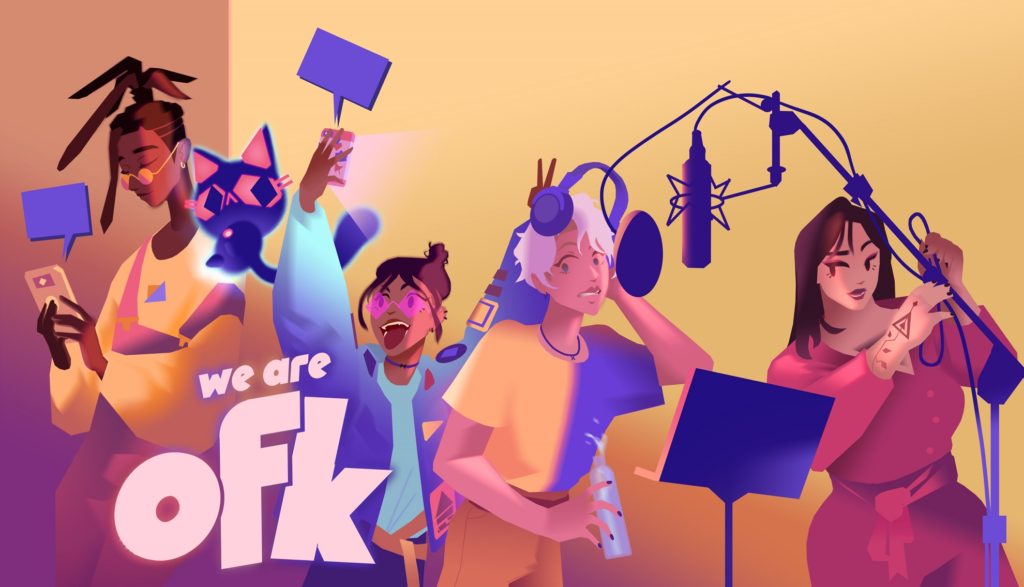
Provided by Team OFK
Review: We Are OFK is a Wonderful Story, But a Questionable Video Game
Team OFK’s We Are OFK is endearing, clever, funny, and genuine in a way I wasn’t expecting based on the game’s marketing. It’s a story about a group of queer creatives that had me hooked to the end, and deeply emotionally invested as I played through each of the five chapters. But for as compelling as We Are OFK’s narrative is, its gameplay leaves absolutely everything to be desired.
The game is a “biopic” following the creation of indie, synth-pop band We Are OFK. Players can pause the game like a video player, rewinding or fast-forwarding. During dialogue, you’re able to select the character you’re playing as’ responses from a few options, the same with text messages. The only other interactive parts of the game are during each chapter’s music video sequences. As you advance through each subsequent episode of We Are OFK, you get to explore the music video for one song from the upcoming EP.
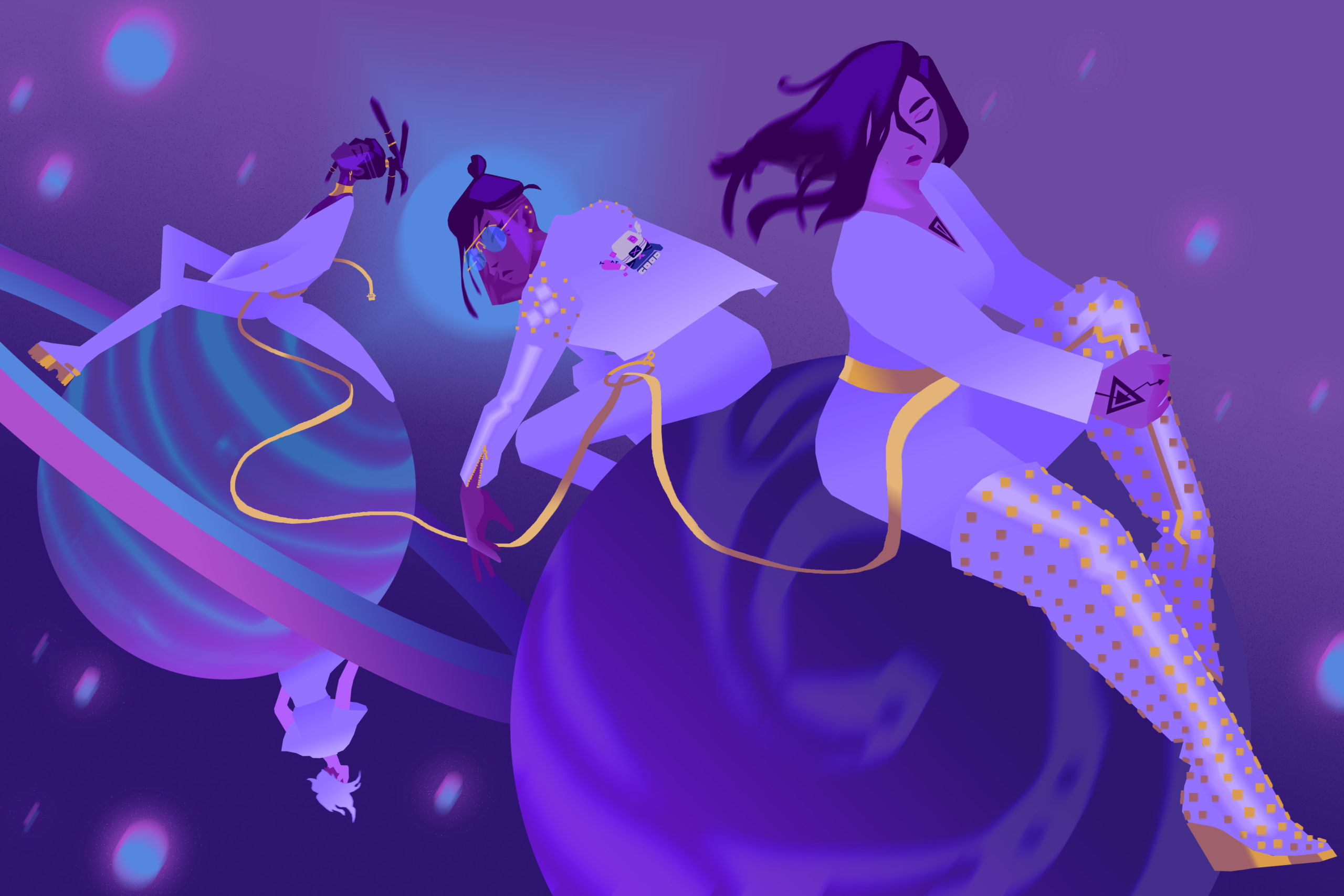
After the first one, though – a funky little platformer/collection thing where you gather scattered shards – these sections are largely just skimming your cursor across the screen where indicated. Beyond that, the audience is really just that, people to sit back and watch events unfold. The level of interactivity here is lower than any visual novel or walking that’s ever received derision, which isn’t necessarily a bad thing, but does truly raise the question of if a video game was the best medium to tell this story. An actual fictional biopic TV show in the vein of Netflix’s Arcane might have been a better fit.
That said, it’s a worthwhile narrative. We Are OFK – both the game and the band – consists of four main characters. Itsumi is the social media manager at a Riot Games-esque development studio who’s also a classically trained pianist. She’s basically a big, gay disaster, still recovering from a recent breakup and subsequent move out on her own. While her work is often frustrating, and her personal life is a mess, Itsumi shows off her serious side when it comes to the management of their band.
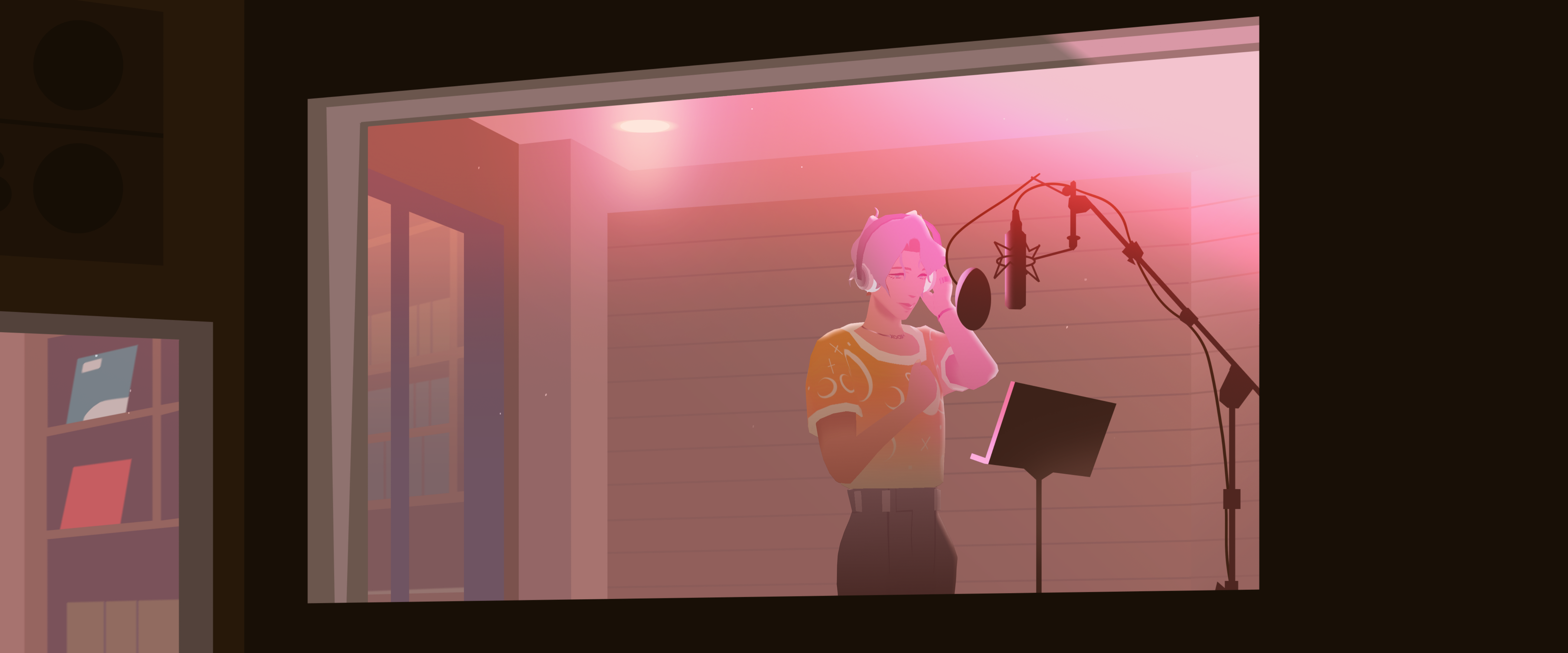
Luca, on the other hand, is flighty on a good day, and an absolute flake on a bad one. He’s a bisexual space case (even affectionately referred to as “Galaxy,” by Jey) with a real knack for singing and songwriting, and a nearly terminal case of being in love with love. This is a huge point of distraction for him, and allows him to procrastinate and hide from his responsibilities, especially when he gets the opportunity to face them head on. When Luca is paying attention, he can be a sweet and present friend, but he’s easily distracted and can often be self-absorbed.
This comes into play in all of his relationships, but particularly with his roommate in LA, Carter. They are a VFX artist and coder who’s working on a holographic, AI cat named Debug. Carter is quiet and often internalizes what they’re thinking and feeling, instead preferring to hide behind esoteric rambling when they do speak. Being open with their current friend group is something Carter struggles with, despite finding more regular success as an artist following their passions than Luca and Itsumi are when we first meet them.
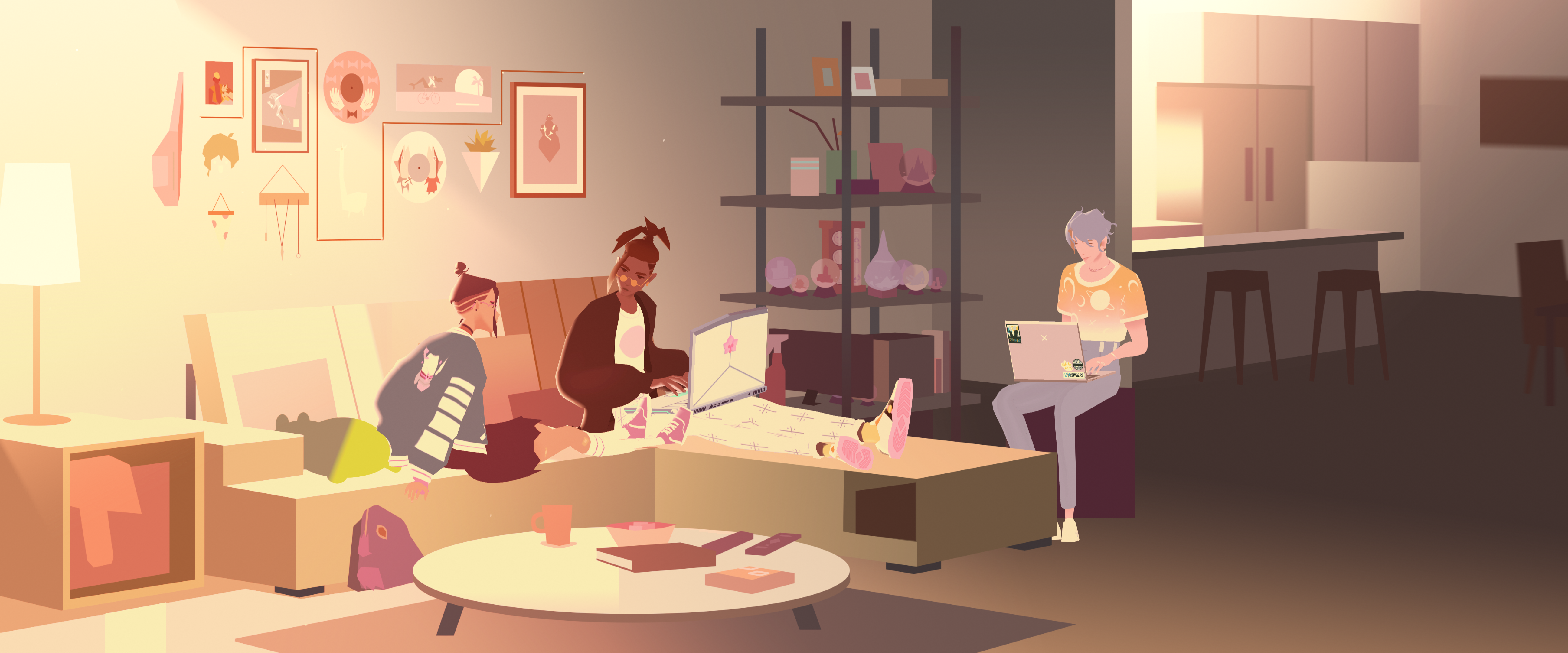
Jey rounds out the band, and like Carter, she tends to play her cards a lot closer to her chest. The daughter of Chinese immigrants with high expectations for her career success, Jey is a vocal engineer under a lot of pressure to do the “right” thing. What that actually is for her is where the real tension starts to come into play. While she may be a straight forward, bad-ass, power-lifter, Jey isn’t as confident when it comes to following her heart.
These four come together when Luca and Itsu run into Jey at an industry party and she encourages Galaxy to give recording one of his songs a shot. With Istu on the keys, and Carter providing both a vocal filter and very cool mascot with Debug, the band forms and they’re able to get a polished single ready to go for a big event at Itsu’s development studio. Just as everything is coming together and the crew have an EP on the horizon, complications start piling up – and they don’t even have a band name yet, registering their single under the temporary name “Oh Fuck.”
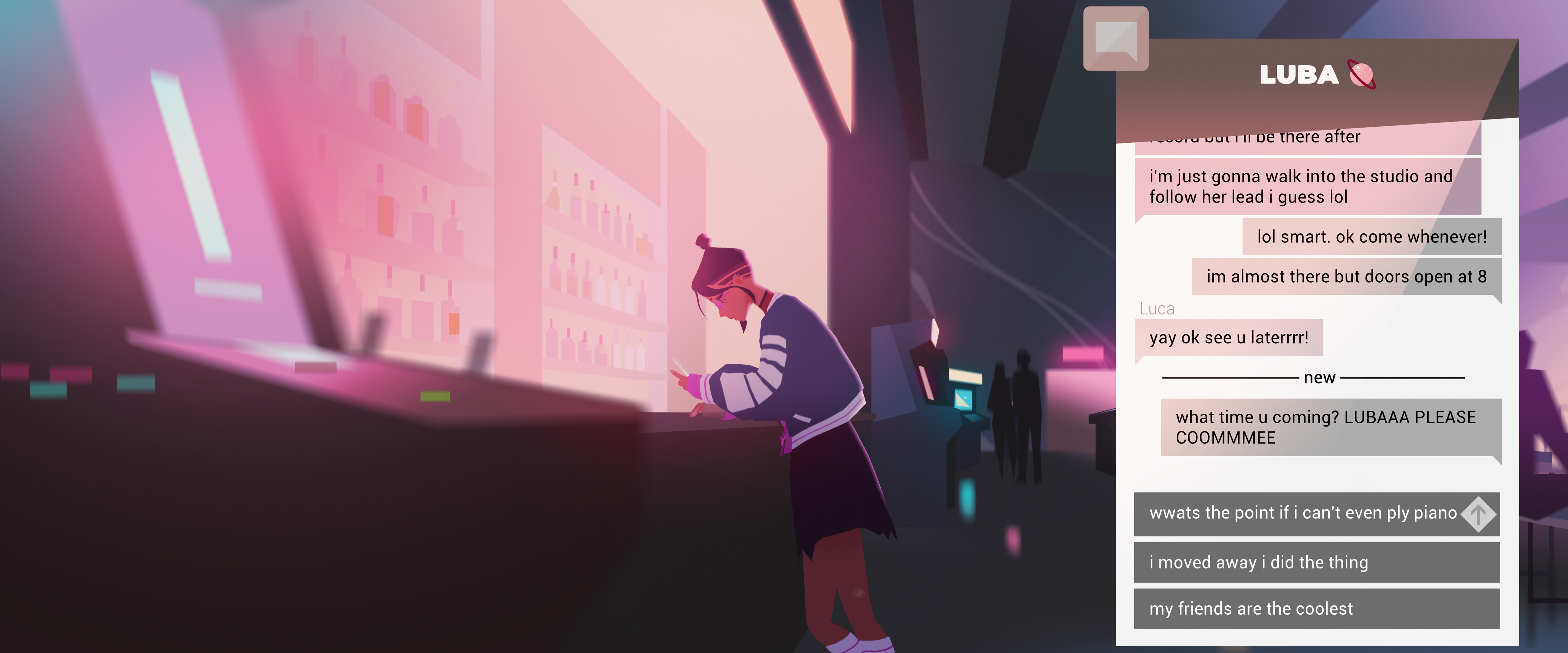
Both career and interpersonal drama come for each member of the band during this critical juncture for their fledgling band, and we get the opportunity to see multiple sides of these friends. Each chapter is predominately focused on one character, following them and having you make very limited choices for them. It’s really refreshing to have a story that feels earnest but not saccharine when it comes to portraying the day to day lives of queer people. None of us are perfect, smol beans, and this game doesn’t try to depict any of its characters in that way. Luca may be dreamy, and Itsu may be an energetic goofball, but both have their own issues and shortcomings to contend with, as do Carter and Jey.
The game is interested in digging into those little nooks and crannies of each character’s personalities more than anything, and it really is a strength. Beat for beat, this story isn’t anything all that unique – we’ve all seen aspiring artists chasing their dreams in LA – but Carter, Itsu, Luca, and Jey give it depth and multiple reasons to actually care about the outcomes of every plot and sub-story. There were times where my heart ached so badly for someone feeling trapped by family obligation, or when it absolutely burned with anger at how another was behaving towards others. Nothing else I’ve played this year has connected with me on an emotional level like that.
While I’m ultimately not sure that We Are OFK was best served by its video game format, it’s still an experience I can’t recommend enough. The visuals are dazzling, the music is killer, and the characters and writing are superb. Digital, video game bands are a trend that’s gaining steam, and despite my own misgivings around how these groups function, I can’t help but say I’m a fan of this one. I likely won’t tune into any streams or interact with them, but their journey hit me hard, and I’m excited to see what’s next.
If you like what we do here at Uppercut, consider supporting us on Patreon. Supporters at the $5+ tiers get access to written content early.





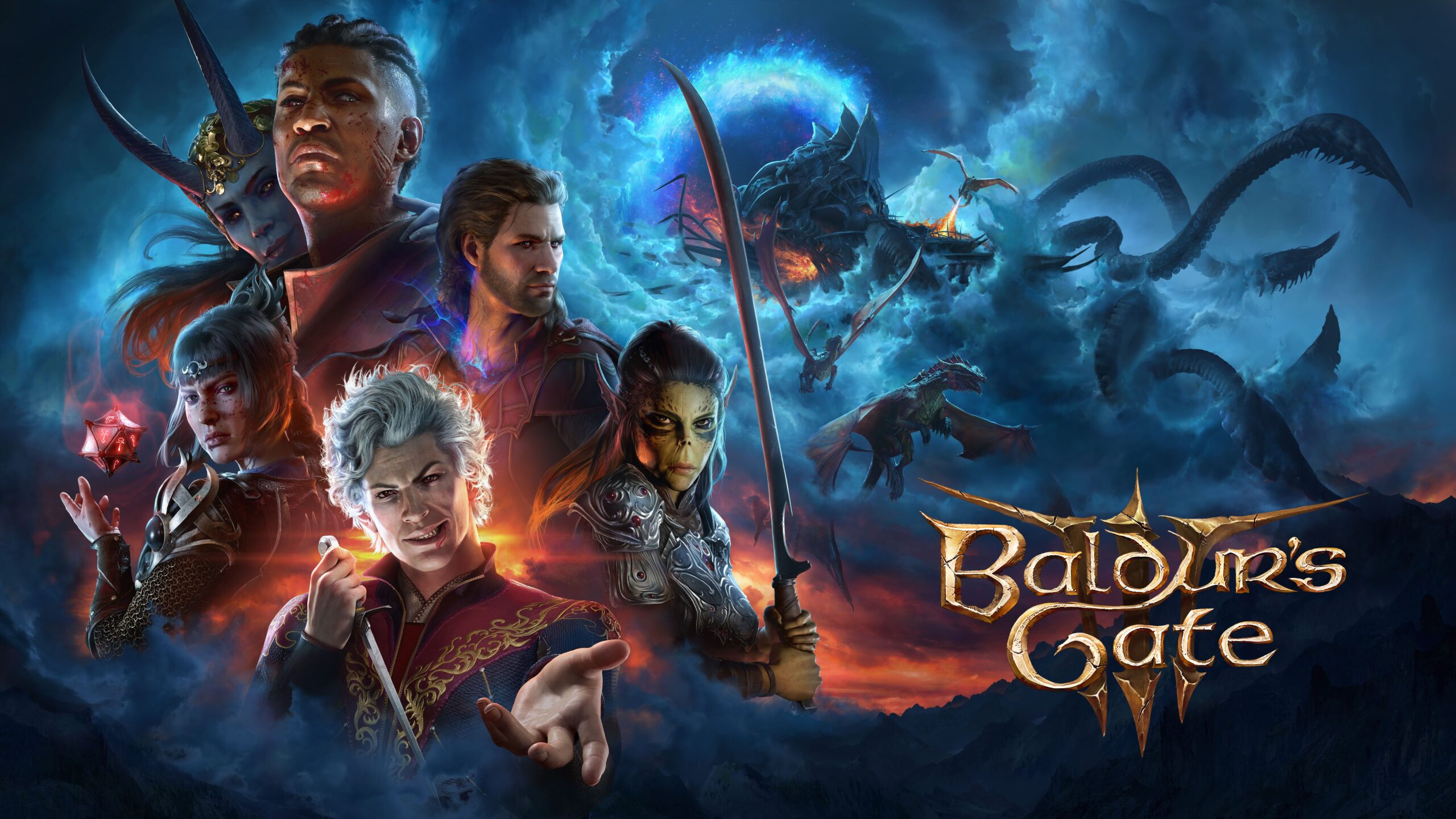
1 thought on “Review: We Are OFK is a Wonderful Story, But a Questionable Video Game”